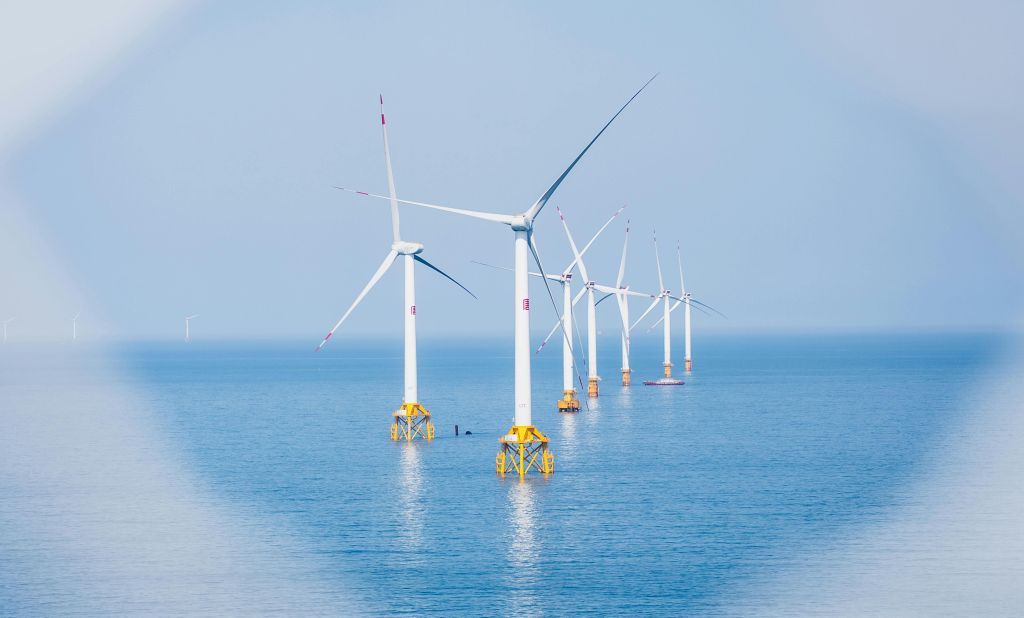Oceans are emerging as the next frontier in the global energy transition. Around the world, offshore wind and marine renewable energy projects are helping countries cut carbon emissions while generating reliable, clean power. As this green revolution expands, so does the need for safe and sustainable practices that protect both people and the planet. The key to achieving this balance lies in proper training, which ensures that those working at sea operate efficiently and responsibly with the environment in mind.
The rise of sustainable offshore wind energy
The offshore wind energy industry has experienced unprecedented growth in recent years. Nations like Denmark, the United Kingdom, and the United States are investing heavily in offshore wind farms that harness the power of ocean winds to generate electricity. Floating wind turbines and wave energy converters are becoming essential components of sustainable development.
Unlike fossil fuel extraction, renewable wind energy operations produce minimal emissions, making them a cornerstone of global decarbonization goals. Yet, sustainability in the offshore wind energy sector cannot be achieved through technology alone; it also depends on responsible human practices. Every installation, inspection, and maintenance activity must be conducted with both safety and ecology in mind.
Challenges in marine environments
Working at sea presents significant challenges that make safety training a necessity. Offshore wind turbines can reach heights of over 100 meters, and technicians often work in harsh weather conditions. Heavy equipment, limited access routes, and long transport times make emergency response more complex than in onshore environments.
The marine environment itself adds to these challenges. Strong winds, unpredictable currents, and corrosive saltwater increase operational risks. Environmental hazards also exist, with spills, debris, or improper waste handling harming the marine ecosystem. Maintaining both operational efficiency and environmental responsibility requires rigorous preparation and specialized training.
Sustainable energy cannot come at the cost of worker safety or ocean health. Balancing these priorities requires teams that are trained not only to perform their tasks but to do so responsibly and sustainably.
Why safety and sustainability go hand in hand
Sustainability is about preserving resources and ecosystems for future generations. In offshore wind energy, sustainability and safety share the same foundation: prevention. When workers operate safely, they minimize waste, avoid equipment damage, and prevent accidents that could pollute or disrupt marine habitats.
A strong safety culture ensures that every action taken at sea supports environmental goals. For example, routine maintenance performed by trained personnel keeps turbines running efficiently, reducing the need for repairs that consume resources. Similarly, safety-trained workers know how to manage materials and waste correctly, preventing harmful substances from entering the ocean.
Simply put, sustainability starts with safe, knowledgeable workers who understand that every careful decision contributes to a healthier planet.
The role of GWO certification in safe operations

One of the most effective ways to establish this balance between safety and sustainability is through GWO certification. The Global Wind Organisation (GWO) sets international standards for safety training in the wind and offshore wind energy sectors. Its certification programs ensure that all workers, regardless of where they operate, follow the same high safety protocols.
This globally recognized framework covers both the physical and environmental aspects of offshore work. Participants learn how to handle real-life situations like emergencies, hazardous weather, and rescue operations while also understanding how their actions impact the broader environment. By applying this knowledge, offshore teams create safer, more sustainable workplaces that reduce incidents and protect marine ecosystems.
Key aspects of GWO training
GWO training is built around core safety modules that address the specific challenges of offshore conditions. The Basic Safety Training suite includes Working at Heights, Manual Handling, Fire Awareness, First Aid, and Sea Survival. Each module reinforces both individual safety and environmental care:
- Working at Heights: teaches how to safely navigate turbine towers and platforms, reducing fall risks and preventing damage to sensitive structures.
- Manual Handling: trains workers to move equipment properly, reducing injuries and preventing accidental drops that could harm property or the environment.
- Fire Awareness: provides knowledge on controlling and extinguishing fires, helping avoid pollution from smoke and chemicals.
- First Aid: ensures that injuries are managed effectively on-site, lowering the need for emergency evacuations that increase carbon footprints.
- Sea Survival: prepares crews for maritime emergencies, promoting safe evacuation without harming the environment.
Together, these courses enhance competence, confidence, and environmental mindfulness, qualities essential for sustainable offshore operations.
How trained teams protect the marine environment
Certified professionals play a crucial role in safeguarding marine ecosystems. Their training allows them to identify and mitigate potential risks before they become incidents. They learn how to contain oil or hydraulic leaks, manage waste responsibly, and use energy-efficient equipment.
A well-trained technician knows that even a small spill or mechanical mishap can harm fragile marine habitats. By applying their safety knowledge daily, they prevent contamination and ensure that renewable projects live up to their sustainable promise.
Moreover, trained teams contribute to the longevity of offshore wind energy assets. Properly maintained turbines and vessels operate more efficiently, consume fewer resources, and reduce overall environmental impact. This combination of human expertise and environmental responsibility defines the future of marine sustainability.
Training locations supporting global offshore wind energy safety
FMTC Safety provides GWO training in multiple locations across the world, including prominent centers in Houston and Lafayette in the United States. These hubs serve major offshore wind energy regions, making it easier for global professionals to access certified safety education.
By situating training facilities near active marine industries, FMTC supports companies in reducing travel emissions and maintaining operational continuity. This approach also enables local workforces to participate in renewable energy projects, creating a sustainable ecosystem of skilled, environmentally aware professionals.
Source link
Ecoideaz ecoideaz.com

